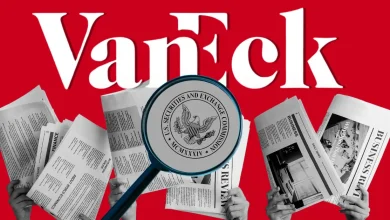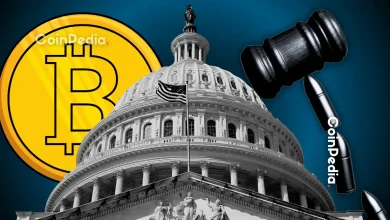Arizona Won’t Build Bitcoin Fund with Seized Assets, Says Governor Katie Hobbs
-
 BTC $ 110,908.80 (1.81%)
BTC $ 110,908.80 (1.81%)

Governor Katie Hobbs vetoed HB 2324, blocking plans to fund a state Bitcoin reserve with seized crypto, citing enforcement disincentives.
Arizona’s cautious stance contrasts with pro-crypto states like Texas and New Hampshire, fueling debate on crypto in public finance.
Arizona Governor Katie Hobbs has vetoed House Bill 2324, which aimed to create a “Bitcoin and Digital Assets Reserve Fund” from seized crypto assets. The bill proposed directing the first $300,000 of confiscated digital assets to the Attorney General’s office, with the remainder split: 50% to the AG, 25% to the state’s general fund, and 25% to the reserve fund.
Governor Hobbs rejected the proposal, arguing it would “disincentivize local enforcement” from participating in digital asset forfeiture, as it removed seized assets from local jurisdictions. Although HB 2324 passed the House with a 34-22 vote, a veto override now appears unlikely.
Hobbs’ Ongoing Crypto Caution
This is not the first time Governor Hobbs has blocked crypto-related legislation. In May, she vetoed Senate Bill 1025, which would have allowed the state to invest up to 10% of its funds in Bitcoin, calling crypto “untested investments.” She also rejected Senate Bill 1373, which proposed a similar reserve of seized digital assets.
However, not all crypto measures were blocked. In May, Hobbs signed House Bill 2749, which amends Arizona’s financial and unclaimed property laws, enabling the state treasurer to manage crypto assets under specific regulatory frameworks — but without using seized funds.
Arizona vs Other Pro-Crypto States
Arizona’s conservative stance contrasts with pro-crypto efforts in other states. Texas recently passed a bill to create its own Bitcoin reserve, while New Hampshire approved legislation permitting investment in crypto and precious metals. Six more U.S. states are advancing similar initiatives.
- Also Read :
- Rare $10M Casascius Bitcoin Bar Cracked Open After 13 Years, But Owner Loses It In Minutes
- ,
Mixed Reaction From the Crypto Community
The veto drew mixed reactions. While some supported the cautious regulatory stance, others criticized it as a missed opportunity. Crypto commentator Frank Corva voiced skepticism over the governor’s reasoning, questioning whether police departments should benefit from asset seizures.
Another user pointed out that law enforcement motivation may drop if local agencies don’t receive a share of seized crypto — a logic Corva found troubling.
What’s Next for Crypto in Arizona?
With SB 1062 and other proposals still active, Arizona remains a battleground for how digital assets are integrated into government frameworks. Governor Hobbs’ decision has further ignited the national debate over crypto’s role in public finance and criminal asset management.
Never Miss a Beat in the Crypto World!
Stay ahead with breaking news, expert analysis, and real-time updates on the latest trends in Bitcoin, altcoins, DeFi, NFTs, and more.
FAQs
House Bill 2749, signed by Governor Hobbs, amends Arizona’s financial and unclaimed property laws. It allows the state treasurer to manage unclaimed crypto assets and deposit staking rewards or airdrops into a reserve fund. This differs from vetoed bills like HB 2324, which focused on seized crypto assets, and SB 1025/SB 1373, which proposed direct state investment of public funds into crypto.
Arizona’s approach, particularly with Governor Hobbs’ vetoes, is more cautious than other states. While Arizona rejected direct investment of public funds or full redirection of seized assets, states like Texas and New Hampshire have approved initiatives for state Bitcoin reserves, sometimes allowing direct investment or retaining seized assets rather than immediately liquidating them, showcasing varied approaches to integrating crypto into public finance.
With the veto of HB 2324, the article implies that seized crypto assets in Arizona are not currently being directed to a new state-managed “Bitcoin and Digital Assets Reserve Fund” in the manner proposed. While the specific current allocation isn’t detailed, Governor Hobbs’ concern was that the bill would remove assets from local jurisdictions, suggesting local law enforcement previously retained a share.
Trust with CoinPedia:
CoinPedia has been delivering accurate and timely cryptocurrency and blockchain updates since 2017. All content is created by our expert panel of analysts and journalists, following strict Editorial Guidelines based on E-E-A-T (Experience, Expertise, Authoritativeness, Trustworthiness). Every article is fact-checked against reputable sources to ensure accuracy, transparency, and reliability. Our review policy guarantees unbiased evaluations when recommending exchanges, platforms, or tools. We strive to provide timely updates about everything crypto & blockchain, right from startups to industry majors.
Investment Disclaimer:
All opinions and insights shared represent the author's own views on current market conditions. Please do your own research before making investment decisions. Neither the writer nor the publication assumes responsibility for your financial choices.
Sponsored and Advertisements:
Sponsored content and affiliate links may appear on our site. Advertisements are marked clearly, and our editorial content remains entirely independent from our ad partners.








